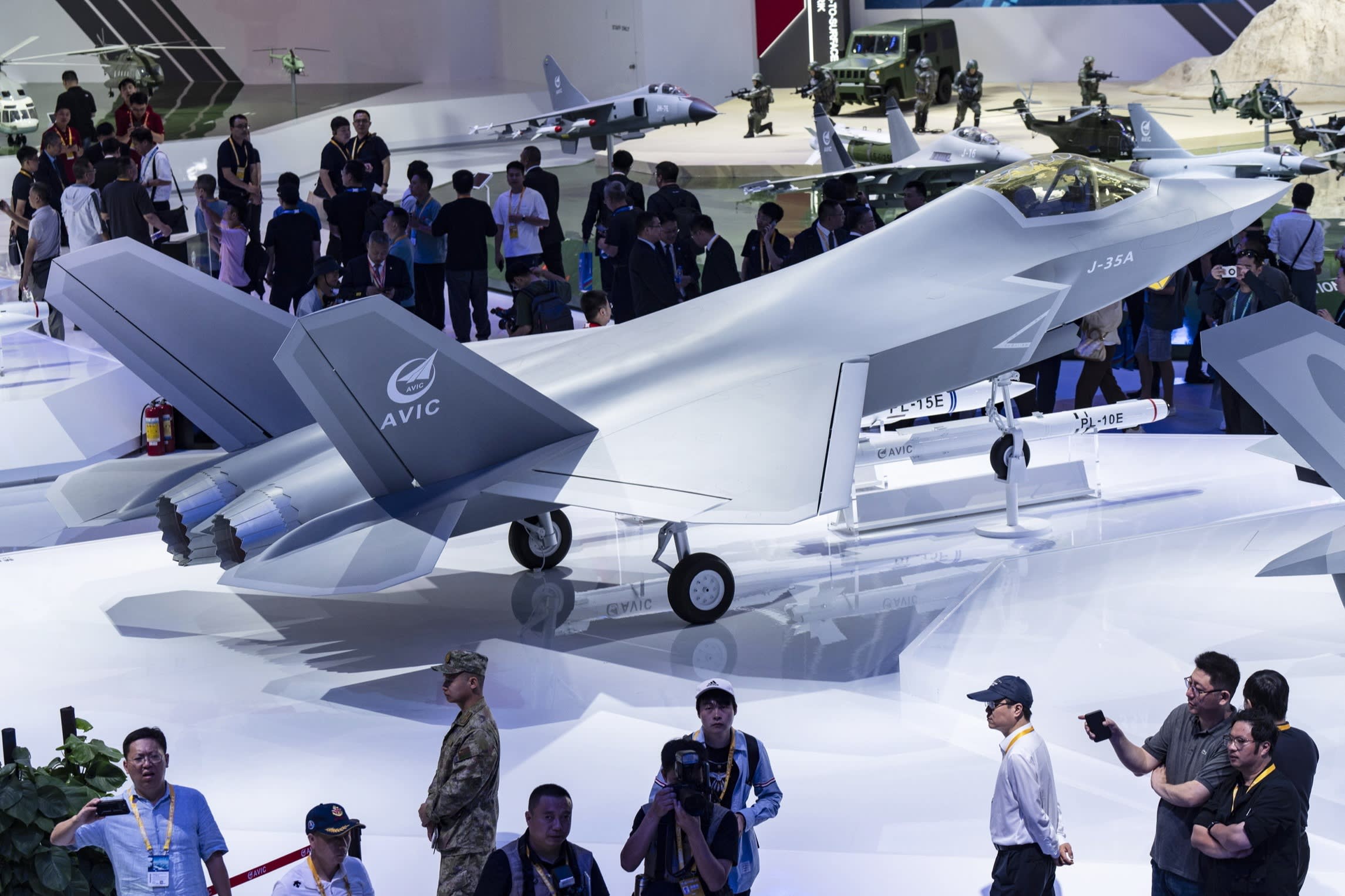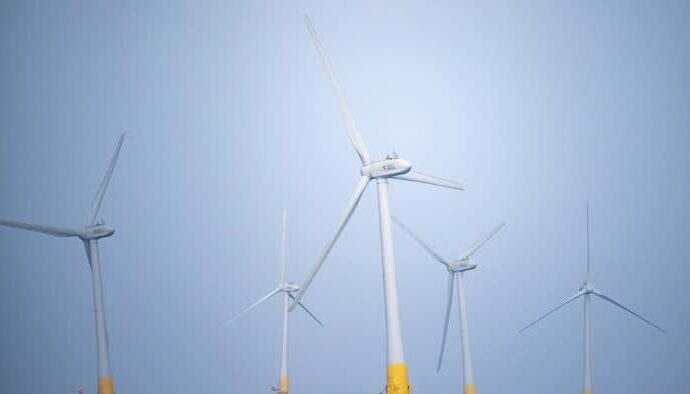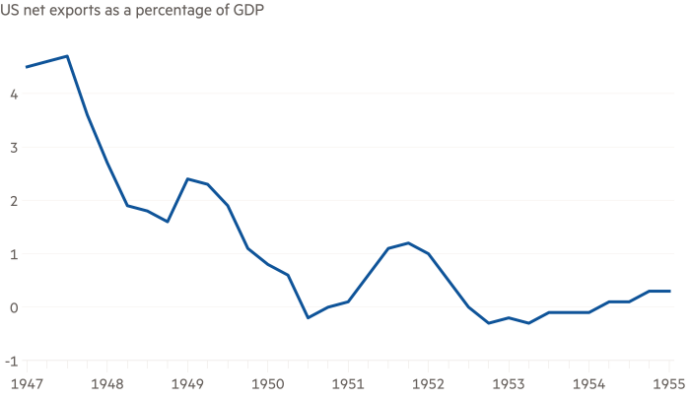Pakistan’s army strongman is in Washington on a trip intended to reinforce military and economic ties with the US even as his nuclear-armed south Asian nation draws closer to China.
The five-day official visit by Asim Munir, who as chief of the army is Pakistan’s most powerful figure, was agreed despite efforts by India to isolate him following fierce military clashes between Islamabad and New Delhi last month. He is expected to have lunch with US President Donald Trump on Wednesday.
The meeting highlights Islamabad’s warming ties with Washington under Trump, who during his first term suspended military aid to Islamabad over its alleged support for terrorism in Afghanistan but this month praised Pakistan’s “very, very strong leadership”.
General Michael Kurilla, head of US Central Command, this month hailed what he called a “phenomenal partnership” with Munir’s military in the fight against the Afghanistan-based radical Islamist group Isis-K.
Trump has thanked Pakistan for delivering a Isis-K member suspected of involvement in a bombing that killed 13 marines during the US withdrawal from Afghanistan.
“The US military still has an important counterterrorism partnership with Pakistan, even as India accuses Pakistan of being a terror sponsor,” said Christopher Clary of the University at Albany in New York.

Munir’s US visit, which began on Sunday and is his second since the former spymaster took over as military chief in 2022, showed “the relationship exists and is important to Washington”, despite the fear of some in the US capital that Pakistan was already “firmly aligned with Beijing”, Clary said.
Islamabad has done little to ease such concerns by pursuing new deals to acquire advanced weaponry and technology from China, already its main arms supplier.
In a post on social media site X on June 6, the Pakistan government said China had offered to sell it 40 fifth-generation J-35 stealth fighter jets, as well as new radar and air defence systems.
The X post was later deleted, but Asim Suleiman, a retired Pakistani air marshal who still receives briefings from the military, said a deal was in the works for the roughly three dozen aircraft “to likely arrive in 2026”.
China’s ministry of defence did not respond to a request for comment.
If delivered, the J-35s could be the first fifth-generation stealth fighters to be deployed in South Asia. India is developing an indigenous Advanced Medium Combat Aircraft, but Walter Ladwig, associate fellow at the Royal United Services Institute in London, said it remained “in prototype stage, with first flights not expected before 2026 at the earliest, and most likely 2028”.
Pakistan said during May’s clashes that it used less-advanced Chinese-made aircraft and air-to-air missiles to shoot down six Indian fighters, a claimed feat later praised by Jiang Zaidong, China’s ambassador in Islamabad, in a meeting with the chief of Pakistan’s air force.
“Pakistan became a showcase of not just Chinese equipment, but also the deepest defence relationship that exists between Beijing and any other country,” said Andrew Small, senior fellow at the German Marshall Fund in Berlin and author of The China-Pakistan Axis.
“It was a live display of what ‘all-weather’ friendship means: Chinese support in training, the integration of radars and satellites, intelligence-sharing, and the provision of export-ready equipment that could benefit other countries,” Small said.

In the months leading up to Pakistan’s May clashes with India, its ties with China had been tested by militant attacks against Chinese workers, requests for relief over its mounting debts to Beijing and delays at projects such as a Chinese-funded port in the coastal city of Gwadar.
But Beijing wants Islamabad to be able to compete militarily with its larger and richer neighbour and arch-enemy.
“China would like to prevent Indian dominance of the South Asia region, especially given the US-India alignment,” said Yun Sun, director of the east Asia programme at the Stimson Center in Washington. “In Beijing’s view, between India and Pakistan, parity brings stability and disparity brings instability.”
Maleeha Lodhi, a former Pakistani ambassador to the US and UN, said Islamabad would seek to further improve ties with Washington, but not at the expense of its relationship with Beijing, also an important lender to the cash-strapped government.
“There is no equivalence in Pakistan’s relations with the US and China. Pakistan’s strategic priority is its ties with China. That’s because China meets both Pakistan’s economic and defence needs,” Lodhi said.
Islamabad has been ready to engage with other countries viewed with suspicion by Washington as it tries to secure its restive western border regions. At Chinese-brokered talks in May, Pakistan and Afghan negotiators agreed to exchange ambassadors, collaborate on counterterrorism and extend the $60bn China-Pakistan Economic Corridor infrastructure project to Afghanistan.
Also in May, Munir discussed deepening defence ties with Mohammad Bagheri, then-chief of Iran’s general staff who was killed in Israel’s June 13 attack, and Iranian supreme leader Ayatollah Ali Khamenei.
But the army chief, who since the India clashes has been appointed field marshal — a rank last held by Pakistan’s first military dictator Ayub Khan — has pressing reasons to try to stay in Washington’s good graces.
Islamabad depends on Washington’s support for its $7bn IMF programme and officials are keen to persuade the Trump administration not to impose threatened tariffs of up to 29 per cent on Pakistan’s imports.
Pakistani officials have praised Trump as a “man of peace”, crediting him with orchestrating the ceasefire that ended the May fighting with India and welcoming the US president’s offer to mediate the Kashmir territorial dispute between the nuclear-armed neighbours.
Trading his khakis for a suit and tie, Munir said in speech to members of the Pakistani diaspora in Washington on Monday that Islamabad would collaborate with the Trump administration on cryptocurrency policy and welcome US involvement in its mineral sector, according to television channel Geo.
US investors could reap up to $15bn every year for 100 years if they helped harvest Pakistan’s resource riches, the army chief said.


